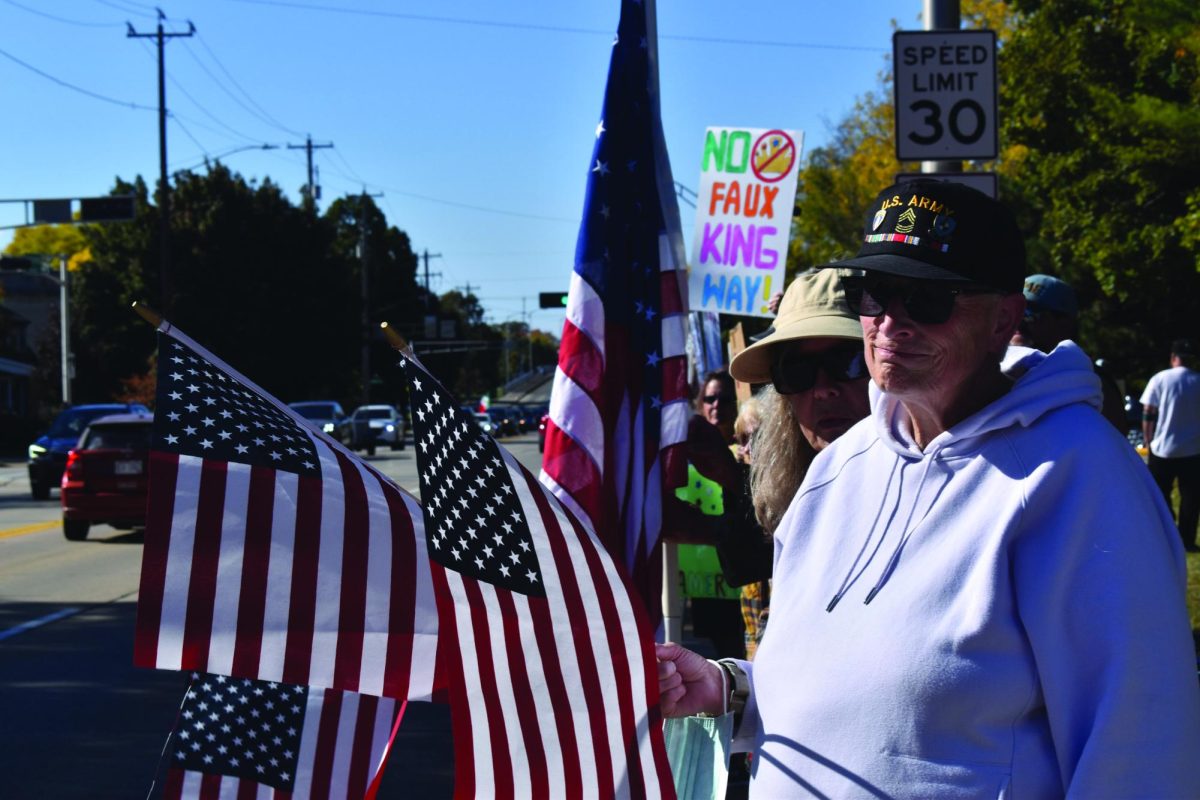The Campus Awareness for Relationship Education organization hosted the fourth annual #RapeIsNotAJoke event in Reeve Memorial Union Ballroom on April 20.
The event focused on eliminating negative stereotypes about rape and raising awareness about rape culture in our society
Members of CARE spread awareness around campus by wearing blue headbands with numbers on them, representing the number of people estimated to be sexually assaulted each year on campus.
Staff Counselor Leslie Wartgow, who headed the event, said in a recent report that 44 students were sexually assaulted on the University of Wisconsin Oshkosh campus in the 2013-2014 school year.
“Obviously that’s completely underreported,” Wartgow said. “We estimate that there is between 230-250. [The numbers] only go to 250 because that’s our estimate of how many women or victims would be on this campus based on how big this campus is.”
Wartgow said campus sexual assault is different than community sexual assault because of how much of their life revolves around being on campus.
Wartgow said victims might encounter their attackers after an assault just by attending classes and this possibility alone is enough to cause victims to avoid leaving their dorm or residences.
“It’s a very small community and so the likelihood of [the victim] seeing that person or knowing someone that knows person is very likely,” Wartgow said.
Wartgow said if someone on campus is sexually assaulted, she hopes the victim utilizes the resources available, such as the campus victim advocate.
Wartgow said the campus victim advocate is able to provide support, give information about your options and your rights and empower the survivor to make their own decisions.
“The legal system, obviously, is a very confusing place to be; [they] can help you with that as well…. There’s lots of things and lots of options that [they] can provide.”
CARE member Chris Matsche said rape culture is a term used to describe the normalization of sexual assault and sexual violence in society, which media and social norms condone.
“Objectification and sexualization of people are just two examples of how this is shown in the media,” Matsche said.
Matsche said common stereotypes describe women as weak, submissive or a sexual objects, while common stereotypes describe men as dominant, sex-driven and masculine.
“As a man, that pisses me off,” Matsche said. “I do not want to be perceived as some sex-driven macho man…. It drives me nuts.”
University Police Sergeant Eric Freville said there has been an evolution in how law enforcement reacts to sexual assault because it’s different than other crime.
“We really want to focus on helping the victim first,” Freville said.
Prosecutor at the District Attorney’s Office Eric Sparr said the reaction to sexual assault really has changed in the last 10 years with things like Sexual Assault Response Team.
“That’s a group that gets together from a number of different professions and is trying to figure out a better system response to sexual assault,” Sparr said. “Not necessarily to handle any one particular case, but a general response and a prevention type of response. It’s not just reacting to a single thing that happened.”
Student Mckenzie Valenta said part of being an ally to people who have been sexually assaulted is having listening ears.
“If someone comes to you, don’t blame them, don’t ask questions about it, that’s going to seem like you’re blaming them,” Valenta said. “Just listen to them and ask how you can help them.”








